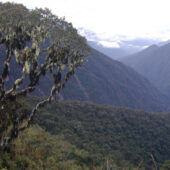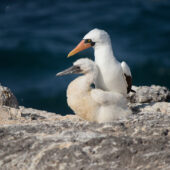NSF grant supports biochemistry research and mentoring outreach
 The National Science Foundation recently awarded a $680,000 grant to Wake Forest University Associate Professor of Chemistry Patricia Dos Santos. In addition to funding research that helps scientists better understand life on earth, the grant also enables her to mentor students from other Triad-area colleges.
The National Science Foundation recently awarded a $680,000 grant to Wake Forest University Associate Professor of Chemistry Patricia Dos Santos. In addition to funding research that helps scientists better understand life on earth, the grant also enables her to mentor students from other Triad-area colleges.Categories: Experiential Learning, Mentorship, Pro Humanitate, Research & Discovery

 Wake Forest University has participated in a yearlong process with the Atlantic Coast Conference, partner ACC universities, and the Smithsonian Institution to create the first “ACCelerate: ACC Smithsonian Creativity and Innovation Festival.”
Wake Forest University has participated in a yearlong process with the Atlantic Coast Conference, partner ACC universities, and the Smithsonian Institution to create the first “ACCelerate: ACC Smithsonian Creativity and Innovation Festival.” Hundreds of Wake Forest students, faculty, staff and friends of the University will run laps around Hearn Plaza on Thursday, Sept. 28, for ‘Hit the Bricks.’ The event will be held from 11 a.m. to 7 p.m.
Hundreds of Wake Forest students, faculty, staff and friends of the University will run laps around Hearn Plaza on Thursday, Sept. 28, for ‘Hit the Bricks.’ The event will be held from 11 a.m. to 7 p.m. Wake Forest University is seeking feedback from students, faculty and staff regarding changes to the undergraduate Code of Conduct.
Wake Forest University is seeking feedback from students, faculty and staff regarding changes to the undergraduate Code of Conduct. U.S. News and World Report’s 2018 Best Colleges guide ranked Wake Forest University 27th overall among 311 national universities and 12th for its commitment to undergraduate teaching.
U.S. News and World Report’s 2018 Best Colleges guide ranked Wake Forest University 27th overall among 311 national universities and 12th for its commitment to undergraduate teaching. Hidden in plain sight – that’s how researchers describe their discovery of a new genus of large forest tree commonly found, yet previously scientifically unknown, in the tropical Andes. Researchers from the Smithsonian and Wake Forest University detailed their findings in a study just released the journal PhytoKeys.
Hidden in plain sight – that’s how researchers describe their discovery of a new genus of large forest tree commonly found, yet previously scientifically unknown, in the tropical Andes. Researchers from the Smithsonian and Wake Forest University detailed their findings in a study just released the journal PhytoKeys. The WFU Awards and Recognitions briefs celebrate milestones of faculty, staff and students at Wake Forest.
The WFU Awards and Recognitions briefs celebrate milestones of faculty, staff and students at Wake Forest. The Pro Humanitate Institute at Wake Forest University will host a panel discussion on race, politics and the South called “The Case of Charlottesville: Why Charlottesville Happened and What It Means for the Rest of Us” on Thursday, Sept. 7 at 6 p.m. in Wait Chapel.
The Pro Humanitate Institute at Wake Forest University will host a panel discussion on race, politics and the South called “The Case of Charlottesville: Why Charlottesville Happened and What It Means for the Rest of Us” on Thursday, Sept. 7 at 6 p.m. in Wait Chapel. Tonight, following the first day of classes, Wake Forest University students, faculty and staff will gather for a candlelight vigil to acknowledge and reflect on the recent violence in Charlottesville, Va.
Tonight, following the first day of classes, Wake Forest University students, faculty and staff will gather for a candlelight vigil to acknowledge and reflect on the recent violence in Charlottesville, Va. Within the next century, rising ocean temperatures around the Galápagos Islands are expected to make the water too warm for a key prey species, sardines, to tolerate. A new study by Wake Forest University biologists, published in PLOS One Aug. 23, uses decades of data on the diet and breeding of a tropical seabird, the Nazca booby, to understand how the future absence of sardines may affect the booby population.
Within the next century, rising ocean temperatures around the Galápagos Islands are expected to make the water too warm for a key prey species, sardines, to tolerate. A new study by Wake Forest University biologists, published in PLOS One Aug. 23, uses decades of data on the diet and breeding of a tropical seabird, the Nazca booby, to understand how the future absence of sardines may affect the booby population.